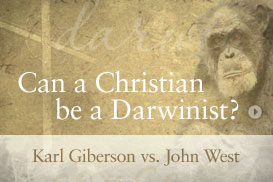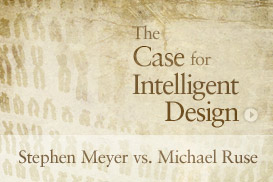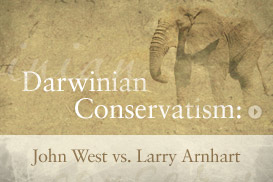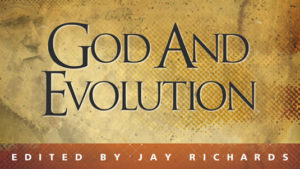Is There an “Edge” to Evolution?
Is There an “Edge” to Evolution?
In his book The Edge of Evolution, biohemist Michael Behe sought to locate the “edge of evolution,” that is, the point beyond which the Darwinian mechanism of natural selection and random mutations is unlikely to be able to explain evolutionary change. In the following essays, you can explore the vigorous debate among scientists sparked by Behe’s book, including Behe’s responses to his critics.
The Edge of Evolution
Michael Behe
In chapter 1 of The Edge of Evolution: The Search for the Limits of Darwinism, Lehigh University biochemist Michael Behe argues that “except at life’s periphery, the evidence for a pivotal role for random mutations is terrible.”
Inferior Design: A Critique of The Edge of Evolution
Richard Dawkins
Disparaging biochemist Michael Behe’s effort to probe the limits of Darwinian evolution, biologist Richard Dawkins appeals, like Darwin, to artificial selection to demonstrate the power of the Darwinian mechanism.
A Response to Richard Dawkins
Michael Behe
Criticizing the ad hominem nature of Richard Dawkins’ attack on his book, biochemist Michael Behe notes that “Dawkins seems quite reluctant to engage my argument at the molecular level; in his review he defers to other scientists for that. He himself gives the kind of argument that a 19th century naturalist might give, before the elegance of the molecular foundation of life was discovered by modern biology.”
Historical Contingency and Evolution
Zachary D. Blount, Christina Z. Borland, and Richard E. Lenski
In this research paper, evolutionary biologist Richard Lenski and his colleagues argue that their research on microevolution in E. coli “suggest[s] that historical contingency is especially important when it facilitates the evolution of key innovations that are not easily evolved by gradual, cumulative selection.”
Multiple Mutations Needed for E Coli
Michael Behe
Analyzing the paper by Lenski et. al., biochemist Michael Behe argues that the results presented confirm his view expressed in The Edge of Evolutionthat “if only one mutation is needed to confer some ability, then Darwinian evolution has little problem finding it. But if more than one is needed, the probability of getting all the right ones grows exponentially worse.”
Waiting for Two Mutations: Exposing the Flaws of Behe’s Argument about the Limits of Darwinian Evolution
Rick Durrett and Deena Schmidt
Drawing on experimental data involving mutations, mathematicians Rick Durrett and Deena Schmidt seek “to expose flaws in some of Michael Behe’s arguments concerning mathematical limits to Darwinian evolution.”
Waiting Longer for Two Mutations
Michael Behe
Biochemist Michael Behe responds to mathematicians Durrett and Schmidt by showing how they make several important errors in applying their model of evolution. Behe argues that when the mistakes of Durrett and Schmidt are corrected, their results actually confirm his point that “it is an extremely difficult evolutionary task for multiple required mutations to occur through Darwinian means, especially if one of the mutations is deleterious.”




